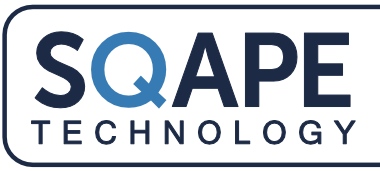SQAPE Technical performance
Technical properties SQAPE
With the SQAPE binder system, as a substitute for cement, SQAPE building materials not only acquire sustainable, but also unique properties.
Working with SQAPE GPM binder hardly differs from the normal methods of producing concrete products (semi-finished and finished products) with cement. Technically, however, there are differences that favour the SQAPE geopolymer, as well as advantages in terms of durability.
SQAPE is currently (proven) usable in non-structural (unreinforced) and also in certain structural applications. We are currently investigating which structural applications our technology can be further used for.
At existing production sites, SQAPE technology is already widely used for (prefab) concrete products such as:
Stones | Tiles | Grass paving stones | Tyres | Pavements | Cycle tracks | Floors | Pit ramps
Properties
The unique combination of secondary raw materials (mineral residues), alkalis and the patented additive makes it possible to develop customised building materials that meet the specific requirements of a job. Compared to Portland cement, the SQAPE technology has several properties that are more favourable (see table).
Table: Comparison of Portland cement properties with SQAPE
| Portland cement | SQAPE |
|---|---|
| Mechanical strength | Higher |
| Acid resistance | Higher |
| Chloride intrusion | Bearing |
| Shrinkage | Bearing |
High mechanical strength
The excellent binding properties provide high flexural and tensile strength. This has been investigated in the application of precast elements, where the use of Portland cement has been completely replaced by our SQAPE technology. Thus, the breaking load strength of a grass tile already after one day of curing meets the requirement of 62.5 N/mm² for heavy traffic loads. After 300 days of curing, it is more than twice the limit. The high mechanical strength can be adapted to the requirements of the application.
High acid resistance
Good acid resistance is important for the service life of the shaped product. This is particularly important in the food industry and in the agricultural sector. In both cases, the impact of acids can affect the flooring. This results in a loss of weight and compressive strength of the material.
Research shows that SQAPE-bonded samples are more acid resistant than comparable cement-bonded samples (average weight reduction of 0.4 kg/m² versus 1.5 kg/m² after 14 days). The lifespan of floors based on our binder can even be doubled. Download the full test report here.
Good processability
Until now, the processing of alkaline-activated binders was difficult to control. By using the patented SQAPE additives, the system is stable and controllable. For example, the setting, flow and shaking rate increases with a higher additive dosage and the open time is adjustable. Download the full test report here.
Tried and tested service life
An important issue is the service life of concrete produced with the components of SQAPE. At SQAPE's request, Delft University of Technology has investigated the service life of three of its mixtures: M I, M II and M III. These alkali-activated mixtures were tested for resistance to sulphate attack, chloride intrusion and carbonation.
Conclusions of TU Delft research
M I: The results show that M I has excellent resistance to the aggressive tests carried out by TU Delft. The performance of M I is comparable to or even better than Portland cement and other alkali-activated systems. The long service life of M I is thus demonstrated and makes M I excellently suited for use in civil constructions.
M II: M II shows good resistance to carbonation and chloride penetration.
M III: M III is characterised by a relatively high vulnerability, mainly to chloride penetration and carbonation.
For detailed information, see the TU Delft report (February 2016).
In a study carried out at the request of SQAPE. SGS INTRON concludes that the SQAPE technology is suitable for the production of geopolymers with an extremely long lifetime.
Low dehydration shrinkage
The SQAPE technology makes it possible to formulate products with very low drying shrinkage. This is particularly advantageous for road surfacing. Fewer dilatation joints are then required. Moreover, SQAPE can also be used for cast floors in wet areas, for example.
If less shrinkage is desired, an optimisation of the recipe will show whether this is feasible. Download the full test report here.
Good adhesion
When SQAPE-bonded materials in under-construction concrete are combined with cementitious top layers, good adhesion is important for the quality of the final product. For example, with floors that consist of an underlay and a top layer, such as cast floors that are applied on top of a layer of channel floor plates.
Studies show that the adhesion of SQAPE-bonded material to cementitious concrete is good. Both with wet geopolymer mortar on dry concrete and with earth-moist mixtures (wet on wet). The average bonding strength in the study was more than 2 MPa. Download the full test report here.
Costs
The cost price of a cubic metre of rock based on SQAPE technology may be slightly higher than that of normal concrete, but the range of technical and sustainable benefits ultimately outweighs this and provides economic advantages as well. To name a few:
Freely applicable
Building materials based on SQAPE technology are freely applicable. Due to their specific structure, their environmental impact is very limited. The binders used meet the limit values in the Soil Quality Decree and have all the necessary certificates
Reusable
Government policy demands that building materials, after use, are increasingly reused as much as possible. Products based on SQAPE technology are highly reusable after recycling, thus very sustainable and circular.
An important condition for this is that the crushed material meets the limit values of the Soil Quality Decree with regard to the release of contaminants (leaching). Materials produced with SQAPE technology have therefore been examined in accordance with the regulations of the Soil Quality Decree. The measured leaching of metals, among others, remains within the emission limits of the Decree. Download the full test report here

